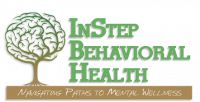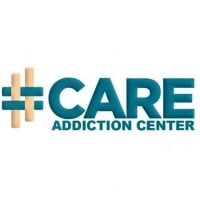Mercy Medical Center - Behavioral Health
Drug Rehab Center in Aurora, Illinois
Mercy Medical Center - Behavioral Health offers comprehensive mental health treatment solutions, including specialized programs and a holistic approach, for patients in Aurora, Illinois, with a focus on dual-diagnosis and co-occurring disorders, accepting private health insurance and providing NRT for smoking cessation.
About This Illinois Facility
Mercy Medical Center - Behavioral Health in Aurora, Illinois is a comprehensive treatment facility for individuals seeking recovery from addiction and mental health disorders. This dual diagnosis center offers a range of personalized treatment programs that cater to the unique needs of each individual. With both outpatient and inpatient options available, Mercy Medical Center provides a supportive and nurturing environment for individuals who are ready to begin their journey towards sobriety. Accepting private health insurance, this facility is committed to providing quality care and helping individuals overcome the challenges they face in their recovery.
At Mercy Medical Center - Behavioral Health, individuals can expect a variety of treatment methods to address addiction and substance abuse. Through a dual-diagnosis approach, the facility provides specialized care for those suffering from both mental health disorders and addiction. Using evidence-based practices and therapeutic modalities, such as individual counseling, group therapy, and family therapy, patients can gain insight into the root causes of their addiction and develop healthy coping mechanisms. Additionally, the center offers a comprehensive aftercare program to support individuals in maintaining their sobriety following treatment.
Genders
Ages
Modality
Additional
Conditions and Issues Treated
Dual Diagnosis refers to someone who is both dealing with addiction and another mental health issue.
There are different kinds of Dual Diagnosis: A person who simultaneously experiences both a mental illness and an addiction disorder. Or, a person who experiences one or more coexisting (simultaneous) mental health conditions in addition to a primary substance use disorder.
Some conditions that commonly co-occur with addiction include:
- Personality Disorders (Borderline, Narcissistic)
- Mood Disorders (Bipolar Disorder, Depression, Anxiety Disorder)
- PTSD (Post Traumatic Stress Disorder), OCD (Obsessive Compulsive Disorder), ADHD (Attention Deficit Hyperactivity Disorder)
- Schizophrenia, Psychosis, Hallucinations, Delusions
Levels of Care Offered at Mercy Medical Center - Behavioral Health
This center offers a variety of custom treatment tailored to individual recovery. Currently available are Dual-Diagnosis, Inpatient, Outpatient, with additional therapies available as listed below.
Individuals who are suffering from severe addiction or have a high risk for dangerous health concerns are often recommended to receive inpatient treatment.
Choosing to enter an inpatient treatment program is beneficial for people who are suffering from severe addiction, or who have a high risk for dangerous health concerns.
Inpatient treatment is beneficial for:
- People who have a history of severe withdrawal.
- People who have attempted to overcome addiction on their own without success.
- People who have a history of relapse, or have recently relapsed.
- People at risk for drug overdose or withdrawal-related complications.
- People with medical conditions that are worsened by drug or alcohol use.
Outpatient treatment programs provide drug and alcohol addiction treatment through individual sessions with a counselor, group therapy, 12-step meetings, and other activities to help individuals gain sober living skills. Most programs are designed for those individuals who have completed a medically supervised detoxification program and provide opportunities for clients to begin the process of early recovery.
Outpatient programs also offer a level of medical support as needed and psychological backing through therapy. Clients are encouraged to live at home, though there may be some flexibility regarding this requirement based on the circumstances and needs of each patient.
Outpatient treatment is perhaps the most common type of dual diagnosis program available. It does not pose a significant financial burden on patients. However, it is essential to note that outpatient treatment does not provide the support and supervision given in residential programs. Some addicts may need this level of support to maintain their sobriety.
Therapies & Programs
Therapy sessions focused on the individual addict can provide much-needed guidance as they work toward overcoming their addiction. These types of sessions typically involve guidance from a therapist, who will help addicts identify and process their feelings and cravings.
During these sessions, addicts may develop plans for coping with the triggers that typically lead to relapse and learn how to avoid those triggers during their recovery process.
If you are looking for drug recovery, couples therapy can be a great option. This type of therapy can help rebuild trust and joy in relationships that may have been damaged by addiction. It can also help reduce the dysfunctional behavior in a relationship that may trigger addiction. A patient’s partner will be involved in the process. They can also benefit from therapy, especially if they are trying to live with an addict.
The main goal of family therapy for drug addiction is to create an environment where communication can occur without judgment, hostility, or blame that often occurs within a family.
Family therapy is a type of group problem-solving that aims to improve communication and relationships between the patient, their family, and sometimes friends. The therapist is with the family as they learn to communicate with each other differently, especially with the addict when s/he is using.
The family can learn to reduce their enabling behavior or rally together and support each other during tough times. The patient also learns how to deal with their addiction and maintain sobriety while interacting with the family.
Different types of addiction treatment services are available. Within this article, group therapy is of interest due to its high success rate compared to individual therapy. Group therapy settings are beneficial because they allow recovering addicts to build a strong support network.
Benefits of group therapy are:
- Reduces feelings of isolation
- Immediate access to social support in the form of fellow addicts in recovery
- Lowers risk of relapse
- Increases rate of sobriety
- Builds coping skills that can be applied to everyday life
Dialectical Behavior Therapy is a cognitive-behavioral therapy that helps addicts balance their thoughts and emotions to change their behavior. It was designed for those vulnerable to self-harm and suicidal thoughts and aims to help patients understand the connection between their feelings, emotions, and behaviors. It is effective for those whose addictions and behaviors stem from severe mental health issues.
Cognitive Behavioral Therapy (CBT) is used by drug treatment centers to help addicts comprehend the causes of their substance abuse and the consequences that follow. Through CBT, clients learn to recognize and avoid high-risk situations and cope with challenging situations when they arise.
CBT treatment often includes a combination of individual therapy, group therapy, lectures, and other activities. The treatment’s goal is to help addicts gain self-control and maintain abstinence from drugs and alcohol over the long term so that an addict can get sober and lead a more productive life.
CBT is particularly effective in helping people overcome their drug problems, especially people whose drug abuse is motivated by self-defeating beliefs and emotions.
Good nutrition can be difficult for people recovering from addiction because they may not feel like eating while they are experiencing the physical and emotional side effects of detoxing.
Nutrition therapy can help addicts in the following ways:
- Helps individuals to understand which foods promote good health and support recovery that will assist them during detox
- Provides guidance and education in Aurora, Illinois about how to maintain a nutritious diet so they can stay healthy during recovery
- Improves their overall health and well-being, which can reduce the severity of substance withdrawal symptoms.
Nicotine replacement therapies are effective because they provide you with the nicotine you are addicted to without inhaling carcinogens from cigarettes. Some types of NRT include nicotine gum, nicotine patches (transdermal systems), nasal spray, and lozenges. The benefits of using NRT can include reducing the risk of heart disease and cancer.
Patient Experience
Experiential Therapy at Mercy Medical Center - Behavioral Health
Experiential therapy is a form of psychotherapy where patients are asked to engage in activities such as role-play, poetry writing, music composition, exercising, or journaling to help process intense feelings. The aim of the therapy is to help patients access deeper, often hidden emotions by helping them explore their own body and mind.
Payment Options Accepted
For specific insurance or payment methods please contact us.
Is your insurance accepted?
Ask an expert, call (888) 674-0062
Additional Details
Specifics, location, and helpful extra information.
Aurora, Illinois 60506 Phone Number(630) 859-2222 Meta DetailsUpdated November 25, 2023
Staff Verified
Patient Reviews
There are no reviews yet. Be the first one to write one.
Aurora, Illinois Addiction Information
In 2016, more than 2,350 Illinoisans died from drug overdoses. More than 5,500 deaths annually occur in Illinois due to the abuse of alcohol and other drugs. 7.17% of Illinois residents reported using illicit drugs in the past month (2018). Substance abuse costs the state approximately $3.5 billion every year.
In Aurora, Illinois, the number of people addicted to drugs has increased from 6% to 8%. This puts them at higher risk for developing one or more serious health problems such as cancer, AIDS, heart disease, stroke, and lung infection. The most common drugs involved in these overdoses were opioids (1,946 deaths). Some programs focus on outpatient care, while others offer residential treatment.
Treatment in Nearby Cities
- Belleville, IL (242.3 mi.)
- Dekalb, IL (24.0 mi.)
- Orland Park, IL (26.6 mi.)
- Beardstown, IL (164.3 mi.)
- West Chicago, IL (9.3 mi.)
Centers near Mercy Medical Center - Behavioral Health
The facility name, logo and brand are the property and registered trademarks of Mercy Medical Center - Behavioral Health, and are being used for identification and informational purposes only. Use of these names, logos and brands shall not imply endorsement. RehabNow.org is not affiliated with or sponsored by Mercy Medical Center - Behavioral Health.




